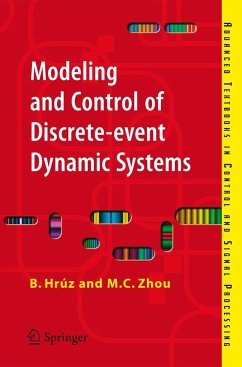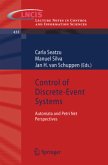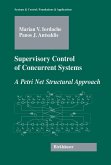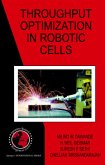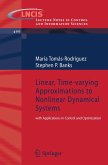Discrete-event dynamic systems (DEDs) permeate our world, being of great importance in modern manufacturing processes, transportation and various forms of computer and communications networking.
"Modeling and Control of Discrete-event Dynamic Systems" begins with the mathematical basics required for the study of DEDs and moves on to present various tools used in their modeling and control. Among the instruments explained are many forms of Petri net, the sequential function chart, state charts, formal languages and max-plus algebra.
Industrial examples illustrate the concepts and methods discussed. Using them, readers will be able to understand DEDs quickly and to master the control methods to analyze and improve the performance of their systems.
Final-year undergraduates and graduates embarking on further courses in control, manufacturing and process engineering, computer studies or operations research will find this text an invaluable aid in learning about the control of this important class of systems.
Hinweis: Dieser Artikel kann nur an eine deutsche Lieferadresse ausgeliefert werden.
"Modeling and Control of Discrete-event Dynamic Systems" begins with the mathematical basics required for the study of DEDs and moves on to present various tools used in their modeling and control. Among the instruments explained are many forms of Petri net, the sequential function chart, state charts, formal languages and max-plus algebra.
Industrial examples illustrate the concepts and methods discussed. Using them, readers will be able to understand DEDs quickly and to master the control methods to analyze and improve the performance of their systems.
Final-year undergraduates and graduates embarking on further courses in control, manufacturing and process engineering, computer studies or operations research will find this text an invaluable aid in learning about the control of this important class of systems.
Hinweis: Dieser Artikel kann nur an eine deutsche Lieferadresse ausgeliefert werden.
From the reviews:
"This is a textbook which offers a very attractive material for learning / teaching discrete-event dynamic systems (DEDS). It is authored by two scientists ... . Besides illustrative examples, each chapter proposes exercises and problems for a deeper training. The exposition style is very accessible and recommends the book for different levels in studying DEDS. The potential beneficiaries are under- and postgraduate students, educators, practitioners and researchers working in control, manufacturing, computer and other engineering areas, where DEDS provide indispensable instruments for analysis and design." (Octavian Pastravanu, Zentralblatt MATH, Vol. 1129 (7), 2008)
"This textbook introduces students, engineers, and researchers to the fundamentals of various discrete-event modeling tools as well as applications. Suggestions are included for tailoring the materials in the book to meet the different needs of senior undergraduate and graduate students." (IEEE Control Systems Magazine, Vol. 29, October, 2009)
"This is a textbook which offers a very attractive material for learning / teaching discrete-event dynamic systems (DEDS). It is authored by two scientists ... . Besides illustrative examples, each chapter proposes exercises and problems for a deeper training. The exposition style is very accessible and recommends the book for different levels in studying DEDS. The potential beneficiaries are under- and postgraduate students, educators, practitioners and researchers working in control, manufacturing, computer and other engineering areas, where DEDS provide indispensable instruments for analysis and design." (Octavian Pastravanu, Zentralblatt MATH, Vol. 1129 (7), 2008)
"This textbook introduces students, engineers, and researchers to the fundamentals of various discrete-event modeling tools as well as applications. Suggestions are included for tailoring the materials in the book to meet the different needs of senior undergraduate and graduate students." (IEEE Control Systems Magazine, Vol. 29, October, 2009)

